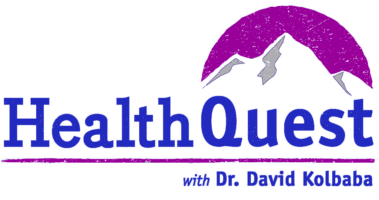Circulation: Arrhythmia and Electrophysiology
Drinking sugar or artificially sweetened beverages was associated with an increased risk of irregular heart rhythms, finds a study in Circulation: Arrhythmia and Electrophysiology.
Research Highlights:
- An analysis of health data in the UK Biobank found a 20% higher risk of irregular heart rhythm, known as atrial fibrillation, among people who said they drank two liters or more per week (about 67 ounces) of artificially sweetened drinks. The risk was 10% higher among people who said they drank similar amounts of sugar-sweetened beverages.
- Drinking one liter (about 34 ounces) or less of pure juice per week, such as 100% orange or vegetable juice, was associated with an 8% lower risk of atrial fibrillation.
- The observational study could not confirm that sweetened drinks cause irregular heart rhythms.
DALLAS, March 5, 2024 — Adults who reported drinking two liters (about 67 ounces) or more of sugar- or artificially sweetened drinks per week had a higher risk of an irregular heart rhythm known as atrial fibrillation compared with adults who drank fewer such beverages, according to new research published today in Circulation: Arrhythmia and Electrophysiology, a peer-reviewed journal of the American Heart Association.
The study also found that drinking one liter (about 34 ounces) or less per week of pure, unsweetened juice, such as orange or vegetable juice, was associated with a lower risk of atrial fibrillation (AFib). However, the study could not confirm whether the sweetened drinks caused AFib, yet the association remained after accounting for a person’s genetic susceptibility to the condition.
Consuming sweetened drinks has been linked to Type 2 diabetes and obesity in previous research. This large study of health data in the UK Biobank is among the first to assess a possible link between sugar- or artificially sweetened beverages and AFib. Atrial fibrillation is a condition in which the heart beats irregularly, increasing the risk of stroke by five-fold. More than 12 million people are expected to have AFib by 2030, according to the American Heart Association’s 2024 Heart Disease and Stroke Statistics.
“Our study’s findings cannot definitively conclude that one beverage poses more health risk than another due to the complexity of our diets and because some people may drink more than one type of beverage,” said lead study author Ningjian Wang, M.D., Ph.D., a researcher at the Shanghai Ninth People’s Hospital and Shanghai Jiao Tong University School of Medicine in Shanghai, China. “However, based on these findings, we recommend that people reduce or even avoid artificially sweetened and sugar-sweetened beverages whenever possible. Do not take it for granted that drinking low-sugar and low-calorie artificially sweetened beverages is healthy, it may pose potential health risks.”
Researchers reviewed data from dietary questionnaires and genetic data for more than 200,000 adults free of AFib at the time they enrolled in the UK Biobank, between 2006 and 2010. During the nearly 10-year follow-up period, there were 9,362 cases of AFib among the study participants.
The analysis found:
- Compared to people who did not consume any sweetened drinks, there was a 20% increased risk of atrial fibrillation among people who said they drank more than 2 liters per week (about 67 ounces or more, or roughly one 12-ounce drink 6 days a week) of artificially sweetened beverages; and a 10% increased risk among participants who reported drinking 2 liters per week or more of sugar-sweetened beverages.
- People who said they drank 1 liter (about 34 ounces) or less of pure fruit juice each week had an 8% lower risk of atrial fibrillation.
- Participants who consumed more artificially sweetened beverages were more likely to be female, younger, have a higher body mass index and a higher prevalence of Type 2 diabetes.
- Participants who consumed more sugar-sweetened beverages were more likely to be male, younger, have a higher body mass index, a higher prevalence of heart disease and lower socioeconomic status.
- Those who drank sugar-sweetened beverages and pure juice were more likely to have a higher intake of total sugar than those who drank artificially sweetened drinks.
- Smoking may have also affected risk, with smokers who drank more than two liters per week of sugar-sweetened beverages having a 31% higher risk of AFib, whereas no significant increase risk was noted for former smokers or people who never smoked.

